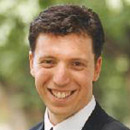Bialik: a national Jewish treasure
DVIR ABRAMOVICH
READING Sam Lipski’s column in which he mentioned Michael Oren’s assessment that “Israel needs a restoration of Zionist and Jewish values” reminded me of a figure that encompassed and amplified those two ideals -— Chaim Nachman Bialik, Israel’s national poet, whose passing, 75 years ago, was marked last month.
When author Batya Gur was asked if Bialik is still relevant today, she replied, “I find it a very insulting question”, while critic Dan Miron observed that “no other spiritual-ideological revolution is equal in its implication to this Bialik revolution, neither the revolution of the Lovers of Zion, nor Eliezer Ben Yehuda, nor Herzl’s revolution or the establishment of the state.”
Indeed, Bialik can never go out of style. His cultural sway still reverberates throughout Israel, where children study and recite his great poems, university students write doctoral dissertations about his grand themes, and oceans of ink are poured about the man and his work.
In many ways, Bialik invented modern Hebrew poetry, opening up Hebrew, drawing from all layers of the language and showing, as he said, that “language is the key to a nation”. Yet, he retained his love for Yiddish and saw Hebrew and Yiddish as “a marriage made in heaven”.
As the star prot√©g√© of Ahad Ha’am, he continuously emphasised the importance of Hebrew culture and literature as sustenance to the soul of the Jewish nation.
It is hard to imagine today any figure in Israel who could inspire the type of public admiration Bialik attracted. When he and his wife arrived in Tel Aviv in 1924, they received a royal welcome.
To enable him to work quietly, Mayor Meir Dizengoff built them a grand villa surrounded by a magnificent garden in a street named after him. At the height of his fame, he had bodyguards to prevent the crowds from crushing him.
I still recall the shock of reading In the City of Slaughter, the 1903 rage-filled and graphic poem that totally redefined the way Jews looked at the world. Based on what Bialik witnessed in the aftermath of the Kishinev massacre, the thunderous, prophetic, path-breaking work, attacking the victims’ alleged passivity spurred young people to take history into their own hands, to fight back, to defend their dignity.
The effect of the poem was electrifying: it was read aloud in gatherings across Russia and led to the establishment of self-defence units, which later spread to Eretz Yisrael. “There wasn’t a Jewish movement that wasn’t effected by it,” noted Ze’ev Jabotinsky.
For the first time, Hebrew literature was competing for the mantle of spiritual leadership with the Jewish religion. Bialik’s poems were rightly credited with substantially growing Zionist membership among the youth.
Bialik lived in a time very much like today, where the tension between secularism and religion was ever-present. And while he was not religiously observant, he had deep respect for the Jewish tradition and dedicated his life to preserving and glorifying its heritage.
At the 1921 Zionist congress, Bialik warned the secular Left not to disdain the religious Orthodox, who “protected us and our Torah -— the historical right that we have to Eretz Israel”.
Bialik’s great project was the Kinus (the cultural ingathering), which resulted in Sefer Ha’agadah. Keen on instilling a new enthusiasm for the Bible, rabbinic literature, medieval Hebrew poetry and other classical texts, he took books that were collecting dust and returned them to the Jewish reader and writer.
Bialik truly believed that the nation’s aron hasfarim could be used to build a unified Hebrew nation from the scattered Diaspora communities and that Zionism was a blend of the secular and the sacred. In fact, he saw Zionism to be the natural, evolutionary continuation of Judaism.
Bialik was one of the first who spoke about the normalisation of the Jewish people. When he heard of the first burglary in 1920s Tel Aviv, he publicly thanked God for letting “us live to see this day and hour”.
Among the most treasures books in my library is a volume of Bialik’s poems. You should have one too.
Dr Dvir Abramovich, the Jan Randa senior lecturer in Hebrew and Jewish studies, is director of the University of Melbourne’s Centre for Jewish History and Culture.


comments